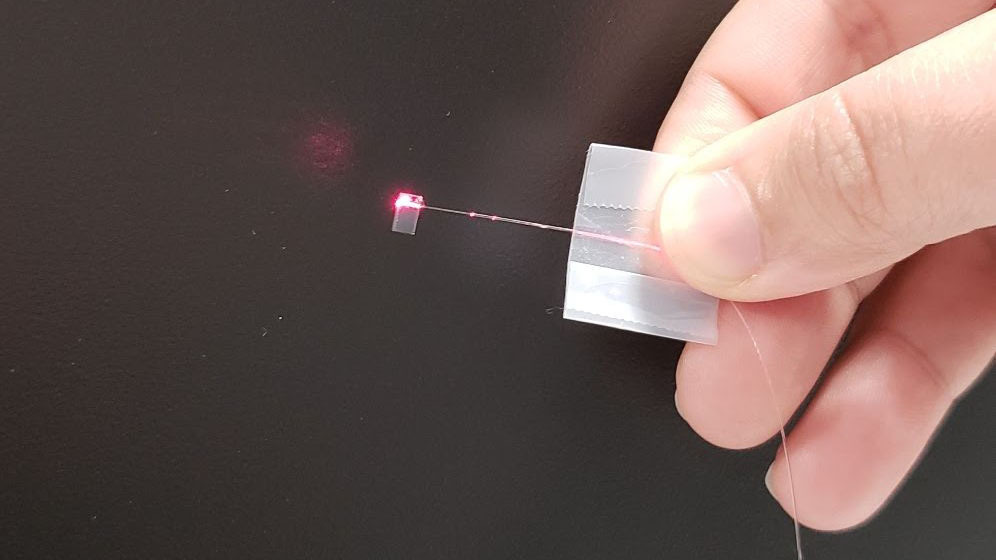Photonect Interconnect Solutions, an I-Corps alumni company, recently secured a $274,996 Small Business Innovation Research (SBIR) Phase I award from the National Science Foundation (NSF) for its photonic technology. Pioneering the development of laser adhesion techniques for attaching optical fibers to photonic chips, Photonect is poised to revolutionize data center operations.
“My master’s thesis was on improving the performance of the chip at the point of connection,” said co-founder and CEO Juniyali Nauriyal. “When I first presented my work at a conference, I had multiple industry people approach me for a potential job opportunity. This made me realize the potential of the fiber-to-chip technology and the challenge it faces in the industry.”
The internet relies on data centers that use optical transceivers to send information through a fiber as thin as a strand of hair. These fibers need to be connected to a chip device, but given their small size, they are challenging to work with and are often imprecisely attached, leading to performance losses. With roughly 100,000 transceivers per data center and over 2,700 data centers in the US, finding a way to accurately connect the fibers is essential for power efficiency and performance.
Photonect’s laser adhesion technique surpasses the conventional glue methods in terms of speed, efficiency, and cost-effectiveness.
“With Photonect’s technology, the cost of connecting an optical fiber to a chip will be reduced up to 50%, we will increase the throughput of the machines by 10 times and increase the efficiency of the fiber-to-chip connection by four times,” Nauriyal said. “This will have a significant impact on the photonics industry, and it will reduce the power consumption of data centers.”
Photonect plans to use its SBIR award to achieve three objectives: reduce the amount of energy lost during the attachment process, demonstrate that their technology is compatible with foundry chips, and ensure the connections made with their laser adhesion techniques are strong and reliable. Accomplishing these goals will enhance the commercialization potential of Photonect’s innovation.
The company started as a research project at the University of Rochester’s Institute of Optics, where Nauriyal was pursuing a PhD. The University of Rochester is also a partner institution of the Interior Northeast I-Corps Hub; Nauriyal completed I-Corps regional and national courses in 2020.
“Customer discovery has been an integral part of our startup journey,” Nauriyal said. “It helped us in deciding to form a company and take the plunge into the optical transceiver world. We learned about critical parameters needed in the industry like cost, time, performance specs — this has helped us in redefining our business strategy.”
Nauriyal was recently selected to join the 2023 cohort of the Activate Fellowship, a selective two-year program that supports scientists working to commercialize their solutions to global challenges. Activate helps scientists turn their technology innovations into products by providing a living stipend, access to research facilities, entrepreneurial training, mentorship, and more.
“The Activate Fellowship provides a community that I can reach out to in times of need; it helps me work on the startup without worrying about my stipend for the next two years,” said Nauriyal. “The fellowship will help me commercialize the technology and will help in bringing it to market.”
Photonect previously won a $250,000 NSF Partnership for Innovation grant, a $50,000 award in the 2022 FuzeHub Commercialization Competition, and the $15,000 grand prize in the 2022 New York Business Plan Competition.


